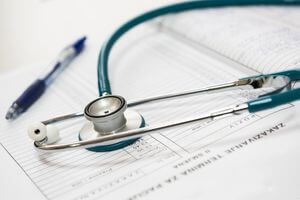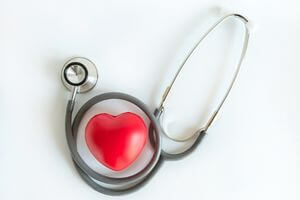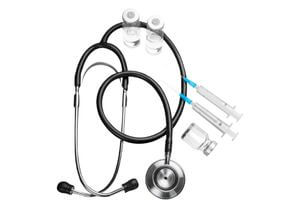A collection of medical quiz questions and answers on various topics related to medicine and health. You can find the correct answers at the end of each round – have fun!
45 Medical Quiz Questions and Answers
1. What are the initials for the human form of BSE?
2. Which letter is used to denote the bird flu virus?
3. A hysterectomy involves removal of what?
4. Osteoporosis is a weakness and brittleness of what?
5. In which decade did a report first appear in the US saying smoking could damage health?
6. What was the nationality of the founder of the Red Cross?
7. Penicillin was the first what?
8. Ebola is also known as which disease?
9. What does S stand for in AIDS?
10. Appendicitis causes pain where?
Round 1 Answers
1. CJD
2. H
3. Womb
4. Bones
5. the 1960s
6. Swiss
7. Antibiotic
8. Legionnaire’s
9. Syndrome
10. Abdomen
Medical Quiz: Round 2
11. Which insects cause bubonic plague?
12. Which disease – more common in children – is also called varicella?
13. What causes cholera – contaminated water, insects or malnutrition?
14. Which part of the body is affected by conjunctivitis?
15. The infection of wounds by what can bring on tetanus?
16. Which of the following is not a blood group – AB, O or T?
17. What sort of flies transmit sleeping sickness?
18. Cranial osteopathy involves the manipulation of which bones?
19. Reflexologists massage which part of the body?
20. Shiatsu is a massage technique from which country?
Round 2 answers
11. Fleas
12. Chickenpox
13. Contaminated water
14. Eyes
15. Soil
16. T
17. Tsetse flies
18. Skull
19. Feet
20. Japan
Medical and Health Questions: Round 3
21. Anabolic steroids are used to repair or build what?
22. What does an analgesic drug do?
23. What does the H stand for in HIV?
24. In which part of the body is the human’s longest bone?
25. Hypertension is another name for what?
26. What is the most common element in the human body?
27. After the skin, what is the next largest human organ?
28. What is another name for the sternum?
29. What do the initials G.P. stand for?
30. Where was the first ambulance used?
Round 3 Answers
21. Muscles
22. Alleviate pain
23. Human
24. Thigh
25. High blood pressure
26. Oxygen
27. Liver
28. Breastbone
29. General Practitioner
30. France
Round 4
31. Someone who is anaemic is probably deficient in what mineral?
32. What is the main use for nootropic drugs?
33. What is the name of the UK’s premier (and the world’s oldest) eye hospital, on the Mile End Road, east London? In which decade was the hospital established: the 1770s, the 1800s or the 1850s?
34. What is the level of a hospital medical practitioner immediately below that of a consultant?
35. What is the common term for the commonly misused drug group, benzodiazepines?
36. What would you probably be prescribed to combat excessive fluid retention in the body?
37. Carl Djerassi was the principal mover in the development of which medical discovery in the 1950s?
38. What is the difference between optometry and ophthalmology?
39. What were the four ‘humours’, which provided the basis for most medicinal study prior to the Renaissance?
40. What was William Röntgen’s major medical contribution in 1895?
41. Empbysemal tuberculosis; pleurisy; encephalomyelitis; which of these is not a disease of the lungs?
42. Paul Ehrlich’s research led him to test various arsenic compounds and find a cure for which hitherto untreatable (and eventually fatal) sexually transmitted disease?
43. The discovery and preparation of which substance earned Alexander Fleming, Ernst Chain and Howard Florey the 1945 Nobel Prize for Medicine?
44. Norethynodrel was licensed by the US drug authority in 1960; what was it for?
45. What is the gas used as a natural relaxant by the body, deficiency of which can cause heart disease?
Round 4 Answers
31. Iron
32. They are smart drugs, most commonly used as memory enhancers
33 Moorfield (founded by John Cunningham Saunders in 1805)
34. (Specialty) Registrar
35. Tranquilizers (including temazepam and diazepam)
36. Diuretics
37. The pill (or oral contraception)
38. Optometry is the examination of eyesight, ophthalmology the study of ocular disease
39. Yellow bile, blood, phlegm, black bile
40. Pioneering work on the X-ray
41. Encephalomyelitis (often referred to with the prefix myalgic and shortened to ME, this is a brain condition symptomised by extreme fatigue)
42. Syphilis
43. Penicillin
44. It was the first widely available contraceptive pill
45. Nitric oxide (the gas is a by-product of nitroglycerine, which was used as a treatment for angina as early as 1870)


